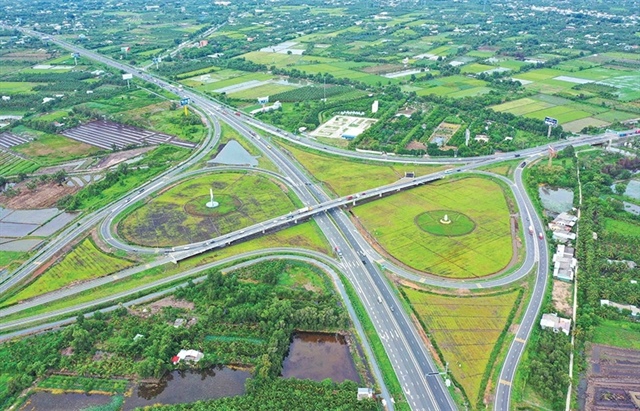Vietnam's economy still at risk of lagging behind other countries: PM
Vietnam's economy still at risk of lagging behind other countries: PM
Though Vietnam has signed multiple free trade agreements (FTAs) in the 2014-2019 period, the possibility of lagging behind other countries is still high if the country does not promptly address shortcomings in the international integration process, said Prime Minister Nguyen Xuan Phuc.

According to a report delivered at a teleconference, today, April 23, on the performance of the National Steering Committee on International Integration, Vietnam has signed 12 FTAs in the last five years and will enter into four new-generation FTAs in the near future, including the European Union-Vietnam FTA (EVFTA).
The country has completed negotiations and concluded FTAs with South Korea and the Eurasian Economic Union, as well as the Comprehensive and Progressive Agreement for Trans-Pacific Partnership, expanding the markets for locally made products, especially agricultural products.
In addition, Vietnam is becoming increasingly attractive to foreign investors as the total registered investment inched up from US$22.35 billion in 2013 to US$35.46 billion last year.
Besides textiles and garments and footwear products, Vietnam’s fruits, such as mango, longan, litchi and dragon fruit, have been shipped to demanding markets, including the United States, Japan and Australia.
However, both State management agencies and enterprises have not been clear or flexible enough during the international integration process, said PM Phuc, adding that the coordination between ministries and localities remains inefficient.
Although the country has concluded many FTAs, its export performance is not as good as expected and the trade deficit remains large.
The Government leader assigned ministries and agencies to make forecasts on the domestic and international markets as well as the country’s opportunities and challenges until 2020 and beyond, up to the next five to 10 years.
The objectives, missions and action plans for each sector should be reviewed as well.
At the teleconference, Nguyen Duc Thuan, chairman of the Vietnam Leather, Footwear and Handbag Association, said that the footwear sector would face fiercer competition in the coming period as a low-cost workforce is no longer an advantage of Vietnam. Labor cost in Myanmar and Bangladesh is half that in Vietnam.
Further, the influx of large distributors into the country has diversified supply, Thuan added, proposing establishing logistics and product research centers to boost the development of supporting industries, thus raising the competitiveness of local products.
In addition, local workers, especially production managers and designers, should be trained or retrained to replace foreign experts to lower costs and at the same time increase labor productivity.
Ousmane Dione, the World Bank country director for Vietnam, gave Vietnam four tips to promote its international integration. The country should accelerate its reform process and focus on developing small and medium enterprises. The integration process must involve the application of technology and ensure environmental protection. In addition, Vietnam should intensify the training of human resources.






















